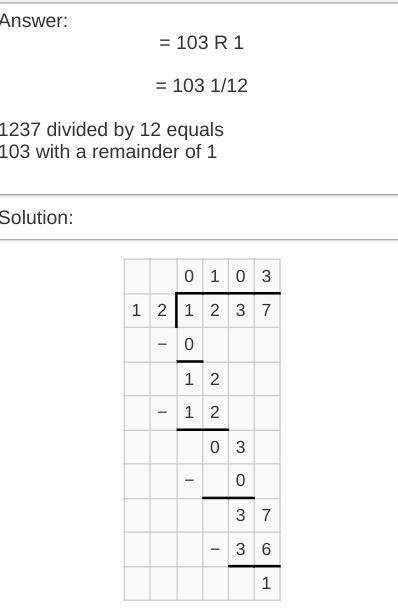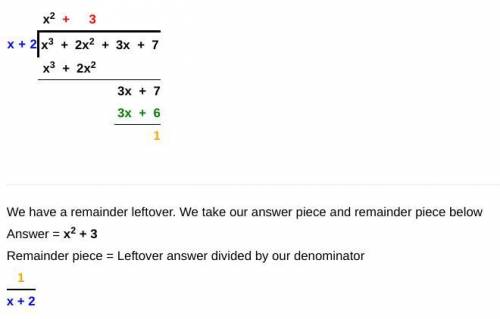
Mathematics, 26.01.2020 22:31 cody6187
Part a: in what way is the algorithmic process the same for integers and polynomials?
part b: in what way is the algorithmic process different for integers and polynomials?
select one answer for part a and one answer for part b.
a: polynomial long division and integer division are not the same at all.
a: when using polynomial long division, the same process of divide, multiply, and bring down applies, just like when dividing integers.
a: when using polynomial long division, the multiply, subtract, and bring down portion applies just like when dividing integers.
b: when using polynomial long division, polynomial terms are added, not subtracted like in integer division.
a: when using polynomial long division, the same process of divide, multiply, subtract, bring down applies, just like when dividing integers.
b: polynomial long division uses powers of variables instead of place values used when dividing integers, and only the first term of the divisor is considered in the divide step.
b: polynomial long division treats remainders differently than they are treated in integer long division.
b: polynomial long division and integer division are completely the same.

Answers: 2


Another question on Mathematics

Mathematics, 21.06.2019 15:00
Adifferent website gives the cost for the first train as £56.88 and the second train as £20.11 with a £9.50 charge for cycle storage for the whole trip. how much would the journey cost you?
Answers: 2

Mathematics, 21.06.2019 16:30
If 10 men take 18 days to mow 60 acres of grass, how long will 15 men take to mow 80 acres?
Answers: 3


Mathematics, 21.06.2019 23:00
Each of the following data sets has a mean of x = 10. (i) 8 9 10 11 12 (ii) 7 9 10 11 13 (iii) 7 8 10 12 13 (a) without doing any computations, order the data sets according to increasing value of standard deviations. (i), (iii), (ii) (ii), (i), (iii) (iii), (i), (ii) (iii), (ii), (i) (i), (ii), (iii) (ii), (iii), (i) (b) why do you expect the difference in standard deviations between data sets (i) and (ii) to be greater than the difference in standard deviations between data sets (ii) and (iii)? hint: consider how much the data in the respective sets differ from the mean. the data change between data sets (i) and (ii) increased the squared difference îł(x - x)2 by more than data sets (ii) and (iii). the data change between data sets (ii) and (iii) increased the squared difference îł(x - x)2 by more than data sets (i) and (ii). the data change between data sets (i) and (ii) decreased the squared difference îł(x - x)2 by more than data sets (ii) and (iii). none of the above
Answers: 2
You know the right answer?
Part a: in what way is the algorithmic process the same for integers and polynomials?
p...
p...
Questions

English, 17.01.2021 17:30

Geography, 17.01.2021 17:30

Mathematics, 17.01.2021 17:30

English, 17.01.2021 17:30

Mathematics, 17.01.2021 17:30

Mathematics, 17.01.2021 17:30


Arts, 17.01.2021 17:30

Mathematics, 17.01.2021 17:30


History, 17.01.2021 17:30




English, 17.01.2021 17:30



Mathematics, 17.01.2021 17:30


English, 17.01.2021 17:30






